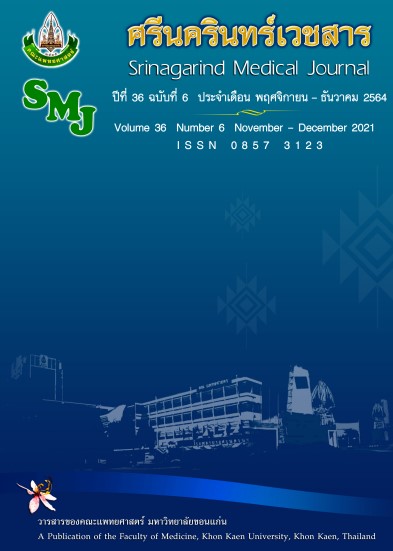Phytocannabinoids Potentially Exert Anti-ovarian Cancer Effects by Increasing Cannabinoid Receptor Expressions
Keywords:
Keywords: Phytocannabinoids, Cannabinoid receptors, Ovarian cancerAbstract
Background and objectives: A major problem with ovarian cancer (OC) is chemotherapeutic resistance suggesting the need for alternative treatments. The anti-cancer abilities of phytocannabinoids (PCs) have been demonstrated, involving the binding of PCs and cannabinoid receptors (CRs). A few reports suggest that endogenous cannabinoid activates CR expression. Therefore this study aimed to demonstrate the inhibitory effects of PCs on ovarian cancer cell proliferation in association with increased mRNA expression of selected CRs.
Methods: Effects of PCs, cannabidiol (CBD), and cannabinol (CBN) on cell proliferation and seven CRs (CRs, CB1, CB2, GPR3, GPR12, GPR55, TRPV1, and TRPV2) expressions in ES-2 cells, a clear cell OC subtype, were determined by sulforhodamine B assay and real-time reverse transcriptase-polymerase chain reaction.
Results: CBD and CBN significantly inhibited ES-2 cell proliferation. Half-maximal inhibitory concentrations (IC50) of CBD at 24, and 48 hours, were 110.27±4.80 and 78.90±6.23 µM, and IC50 of CBN were 170.07±3.21, and 125.80±4.65 µM. Additionally, CBD and CBN differentially induced CR mRNA expressions. CB1, CB2, TRPV1, and TRPV2 were increased in CBD-treated cells. Increased CB1, TRPV1, and TRPV2 were directly related to CBD doses used, while CBN dose-dependent expressions were observed in CB1, CB2, and GPR12.
Conclusion: CBD and CBN inhibited ES-2 cell proliferation in a dose- and time-dependent manner. The differential CRs activations were observed in CBD- and CBN-treated cells. These results suggested the selective CR inductions of CBD and CBN, which later might enhance the anti-cancer effects of the PCs.




